Drug therapy is a fundamental part of general internal medicine, and is as demanding a process as diagnosis. The four sections of this practical guide cover the principles of clinical pharmacology, including drug development, use, and adverse reactions; the practical management of diseases with drugs; drug prescription; and over 300 commonly used drugs in a separate pharmacopoeia, identifying their generic names, usage, modes of action, properties, and effects.
Oxford Textbook of Clinical Pharmacology and Drug Therapy
KSh 2,955.00
Drug therapy is a fundamental part of general internal medicine, and is as demanding a process as diagnosis. The four sections of this practical guide cover the principles of clinical pharmacology, including drug development, use, and adverse reactions; the practical management of diseases with drugs; drug prescription; and over 300 commonly used drugs in a separate pharmacopoeia, identifying their generic names, usage, modes of action, properties, and effects.
1 in stock
Related products
-
Netter’s Clinical Anatomy, 5th Edition
KSh 10,050.00Offering a targeted, concise approach to clinical anatomy, Netter’s Clinical Anatomy, 5th Edition, is a portable, easy-to-read text that bridges normal anatomy to common clinical conditions. It features nearly 600 superb illustrations by Drs. Frank H. Netter and Carlos Machado that provide essential descriptions of anatomy, embryology, and pathology to help you understand their clinical relevance. Authored by John Hansen, PhD, an Honored Member of the American Association of Clinical Anatomists, this visually stunning text covers and reviews the sizable area of human anatomy and pathology in a quick, easy-to-grasp format.
-
Psychology: The Science of Mind and Behaviour 4e
KSh 8,960.00Psychology: The Science of Mind and Behaviour fourth edition has been fully updated to reflect new developments in the field. Its celebrated pedagogical design has been reinforced with key research, issues and offers an exciting and engaging introduction to the study of psychology.The scientific approach brings together international research, practical application and the levels of analysis framework to encourage critical thinking about psychology and its impact on our daily lives. Key features:•Brand new! Psychology at Work interviews from Psychologists in the field provide a glimpse of their day-to-day work and the career path they have taken since completing a psychology degree. •Research Close Ups reflect new research and literature as well as brand new critical thinking questions to increase analysis and evaluation of the findings. •Core subject updates such as DSM-5 for psychological disorders. •Current issues and hot topics such as, social media, prosociality, critical perspectives of positive psychology and coverage of the replication crisis to prompt debates on the questions facing psychologists today.•Focus Arrow Boxes encourage critical analysis and application of the text.
-
Sinners
KSh 650.00Hollywood: glittering premiers, dazzling movie sets, fabulous parties, plush love-nests hidden in Malibu and Beverly Hills. Behind the gorgeous playgrounds of the rich and famous lies a jungle of lust and perversity, greed and ambition, love and danger- where survival is all and innocence is a role nobody plays for long.
-
District Laboratory Practice in Tropical Countries
KSh 21,240.00This new edition includes an update on HIV disease/AIDS, recently developed HIV rapid tests to diagnose HIV infection and screen donor blood, and current information on antiretroviral drugs and the laboratory monitoring of antiretroviral therapy. Information on the epidemiology and laboratory investigation of other pathogens has also been brought up to date. Several new, rapid, simple to perform immunochromatographic tests to assist in the diagnosis of infectious diseases are described, including those for brucellosis, cholera, dengue, leptospirosis, syphilis and hepatitis. Recently developed lgM antibody tests to investigate typhoid fever are also described. The new classification of salmonellae has been introduced. Details of manufacturers and suppliers now include website information and e-mail addresses. The haematology and blood transfusion chapters have been updated, including a review of haemoglobin measurement methods in consideration of the high prevalence of anaemia in developing countries.
-
And the Mountains Echoed Paperback
KSh 1,295.00From the no. 1 bestselling author of The Kite Runner and A Thousand Splendid Suns, the book that readers everywhere have been waiting for: his first novel in six years. So, then. You want a story and I will tell you one… Afghanistan, 1952. Abdullah and his sister Pad live with their father and step-mother in the small village of Shadbagh. Their father, Saboor, is constantly in search of work and they struggle together through poverty and brutal winters. To Adbullah, Pad, as beautiful and sweet-natured as the fairy for which she was named, is everything. More like a parent than a brother, Abdullah will do anything for her, even trading his only pair of shoes for a feather for her treasured collection. Each night they sleep together in their cot, their skulls touching, their limbs tangled. One day the siblings journey across the desert to Kabul with their father. Pad and Abdullah have no sense of the fate that awaits them there, for the event which unfolds will tear their lives apart; sometimes a finger must be cut to save the hand. Crossing generations and continents, moving from Kabul, to Paris, to San Francisco, to the Greek island of Tinos, with profound wisdom, depth, insight and compassion, Khaled Hosseini writes about the bonds that define us and shape our lives, the ways that we help our loved ones in need, how the choices we make resonate through history, and how we are often surprised by the people closest to us.
-
Participation in Project Preparation: Lessons from World Bank-Assisted Projects in India (World Bank Discussion Papers)
KSh 1,000.00This study analyzes the extent to which the India program is meeting the World Bank’s objective of mainstreaming participatory approaches in project preparation and design. It includes ten projects in which participation was an overall project objective. These projects provided “good practice” lessons from a variety of social and natural resource management sectors. -
Qualitative Research Design
KSh 7,700.00Qualitative Research Design: An Interactive Approach provides researchers and students with a user-friendly, step-by-step guide to planning qualitative research. It shows how the components of design interact with each other, and provides a strategy for creating coherent and workable relationships among these design components, highlighting key design issues. Written in an informal, jargon-free style, the new Third Edition incorporates examples and hands-on exercises.
-
The Man Who Quit Money Paperback
KSh 1,000.00In 2000, Daniel Suelo left his life savings-all thirty dollars of it-in a phone booth. He has lived without money-and with a newfound sense of freedom and security-ever since. The Man Who Quit Money is an account of how one man learned to live, sanely and happily, without earning, receiving, or spending a single cent. Suelo doesn’t pay taxes, or accept food stamps or welfare. He lives in caves in the Utah canyonlands, forages wild foods and gourmet discards. He no longer even carries an I.D. Yet he manages to amply fulfill not only the basic human needs-for shelter, food, and warmth-but, to an enviable degree, the universal desires for companionship, purpose, and spiritual engagement. In retracing the surprising path and guiding philosophy that led Suelo into this way of life, Sundeen raises provocative and riveting questions about the decisions we all make, by default or by design, about how we live-and how we might live better.

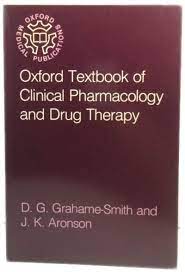
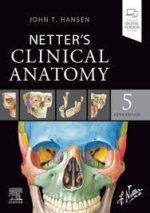
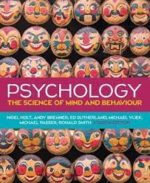
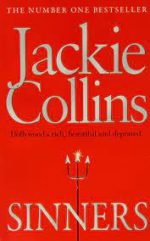
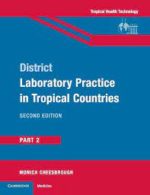

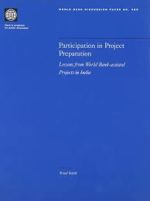
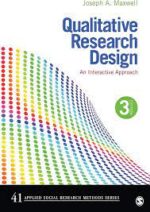

Be the first to review “Oxford Textbook of Clinical Pharmacology and Drug Therapy”